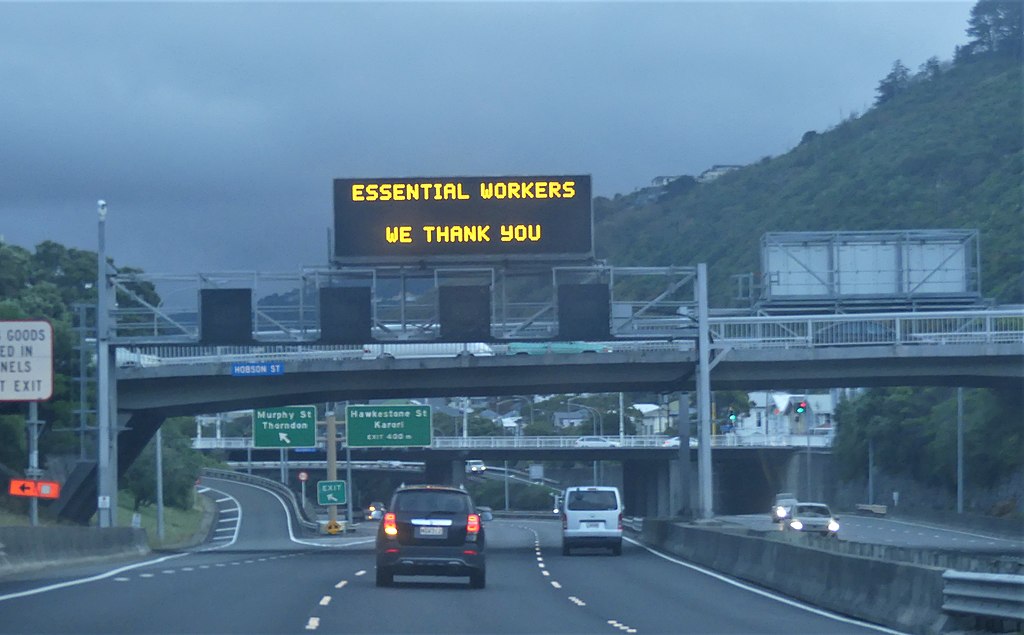Yesterday saw a lively rally on Cuba Mall in support of Equal Pay. The rally was called by the Council of Trade Unions as part of their ongoing campaign, and drew a crowd of over 100, with curious passers-by drawn in by the banners and the dancing — the organisers had choreographed a little number to Donna Summers’ “She Works Hard for her Money”.
There was a good turnout from the unions at the event: the Public Services Association, the New Zealand Nurses Organisation, and E Tū all had a visible presence, along with workers from the NZEI, PPTA, RMTU and TEU. Speakers included Vanisa Dhiru of the National Council of Women, Richard Wagstaff of the Council of Trade Unions, and, of course, Kristine Bartlett, champion of the trailblazing Equal Pay case for aged care workers. That case – won by Bartlett and her union E Tū – saw workers in the female-dominated aged care sector receive, in Bartlett’s words “the biggest pay rise they will ever see.” The message from the speakers was unanimous: the government’s proposed Equal Pay Bill is an attack on the hard-won gains of Bartlet’s equal pay victory, and indeed on the 1972 Equal Pay Act itself.
The draft Bill would make it harder to compare pay rates across industries, and therefore make it nearly impossible to achieve what Bartlet and E Tū did over the last five years. It passed its first reading only a few days ago, just, with 60 votes in favour and 59 against. The votes against were from Labour (31), the Greens (14), New Zealand First (12) and the Maori Party (2). Labour Party leader Jacinda Ardern, Green Party MP Jan Logie, Māori Party co-leader Marama Fox and NZ First MP Tracey Martin had spoken against the Bill a few days before, at a rally outside Parliament. Those who voted for this rubbish bill were National (58), ACT (1), and United Future (1). And the speakers and protesters at the Equal Pay rally were, rightly, talking names. The call from the stage was to kick the National Government out – and this call was met with enthusiasm from the crowd.
Another common theme of the speeches was to invoke the legacy of Kate Shepherd – figurehead of the New Zealand women’s suffrage movement. Another suffragist, H. Livingstone of the New Zealand Women’s Franchise League, could also be quoted. In 1894, one year after the vote was won, Livingstone wrote that the question of equal pay that is “the most important next to franchise itself, and that “although there is no statute, so far as I am aware, forbidding equal salaries, the effects of long custom and worldwide usage are quite as hard to change, perhaps harder.” The history of the equal pay movement – from the socialists, trade unionsts and feminists who won the original 1972 Act to the aged care victory – has been one of inspiring efforts from below and maddening rollbacks and obstructions from successive, mainly National, governments. With the failure of the long-established view in the union movement that consensus and collaborative approaches between government, unions and business are the way forward, and the threat of the new Equal Pay bill, we are no doubt in for another long fight.
You can read more about the draft Bill and fight for Equal Pay in the latest copy of the Socialist Review. To find out more about the current Equal Pay campaign, visit CTU’s website.
Image credit: Joe Boon









